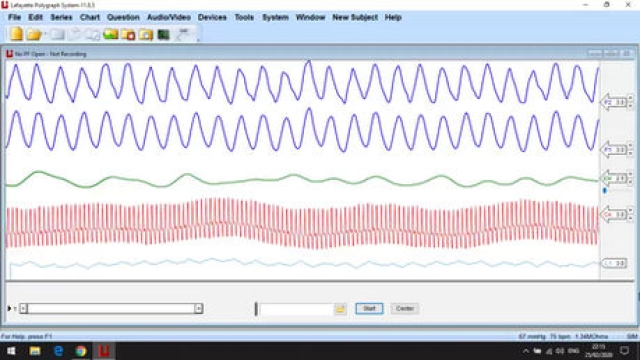
In a world where the quest for truth often clashes with the presence of deception, lie detector tests have emerged as a tool meant to reveal the hidden realities behind human communication. These tests, also known as polygraphs, hold the promise of uncovering deceit by monitoring physiological responses such as heart rate, blood pressure, and skin conductivity. At first glance, the idea of a machine capable of detecting lies seems almost like something out of a sci-fi novel – a glimpse into a future where honesty can be measured in charts and graphs. Yet, the reality behind lie detector tests is far more complex and contentious than many may realize.
The concept of lie detection itself is a topic shrouded in controversy, with some hailing polygraphs as a beacon of truth and others dismissing them as unreliable and outdated. Despite being used in various settings ranging from criminal investigations to pre-employment screenings, the accuracy and validity of lie detector tests remain a subject of intense debate among experts in psychology, law, and ethics. As the curtain of certainty surrounding these tests is gradually pulled back, it reveals a landscape rife with questions about their effectiveness, limitations, and ethical implications.
History of Lie Detector Tests
Lie detector tests, also known as polygraph tests, have a fascinating history dating back to the early 20th century. The prototype for the modern polygraph machine was invented by John Augustus Larson in 1921, a medical student and police officer from Berkeley, California. Larson’s device measured changes in a person’s blood pressure, pulse rate, and respiration in response to questioning, based on the theory that deceptive answers would trigger physiological reactions.
The first practical use of lie detector tests in law enforcement occurred in the 1930s, where they were employed to assist in criminal investigations. The results of these tests were not initially admissible as evidence in court due to concerns about their reliability and accuracy. However, over time, their usage spread to various government agencies and private sectors seeking to uncover deception in various contexts, such as employment screenings and security clearance assessments.
Despite their widespread use, the reliability of lie detector tests has been a subject of ongoing debate. Critics argue that factors such as the subject’s state of mind, the skill of the examiner, and the subjective interpretation of physiological responses can impact the test results. Despite these criticisms, lie detector tests continue to be used in certain situations, shedding light on the complex relationship between technology, psychology, and deception detection.
Accuracy of Polygraph Exams
Lie detector tests, also known as polygraph exams, have been a common tool in criminal investigations and employment screenings. These tests measure physiological responses such as heart rate, blood pressure, and skin conductivity to detect signs of deception. However, the reliability of polygraphs in accurately determining truthfulness has been a subject of debate.
Proponents of polygraph exams argue that they can accurately detect lies by monitoring changes in the body’s physiological responses. They believe that these involuntary reactions can reveal when a person is being deceptive. Supporters of polygraphs point to studies showing high accuracy rates in certain situations, especially when administered by trained professionals in controlled settings.
Despite claims of accuracy, critics argue that polygraph tests are not foolproof and can be influenced by various factors such as stress, anxiety, or the skill of the examiner. Furthermore, there have been cases of false positives and false negatives, casting doubt on the overall reliability of polygraph exams as a definitive measure of deception.
Ethical Concerns in Lie Detection
Lie detector tests raise significant ethical concerns, particularly regarding their accuracy and impact on individuals’ rights. The reliance on physiological responses to determine deception can lead to false accusations and unjust outcomes. Additionally, the subjective interpretation of test results by examiners can introduce bias and errors, potentially infringing on the privacy and dignity of the test subjects.
Polygraph
Furthermore, the use of lie detector tests in employment screening and criminal investigations can unfairly discriminate against individuals based on their physiological reactions. This can create a perception of guilt or dishonesty even in innocent individuals, impacting their reputation and future opportunities. The ethical implications of using such tests as a definitive measure of truth must be carefully considered to avoid unjust consequences and uphold the principles of fairness and justice.
As researchers continue to debate the validity and reliability of lie detector tests, it becomes imperative to establish clear guidelines and ethical standards for their use. Safeguards should be put in place to protect the rights and well-being of individuals subjected to these tests, ensuring that they are not unfairly stigmatized or harmed by the outcomes. Pursuing ethical considerations in lie detection is essential to maintain trust in the justice system and uphold fundamental principles of integrity and respect for human rights.
